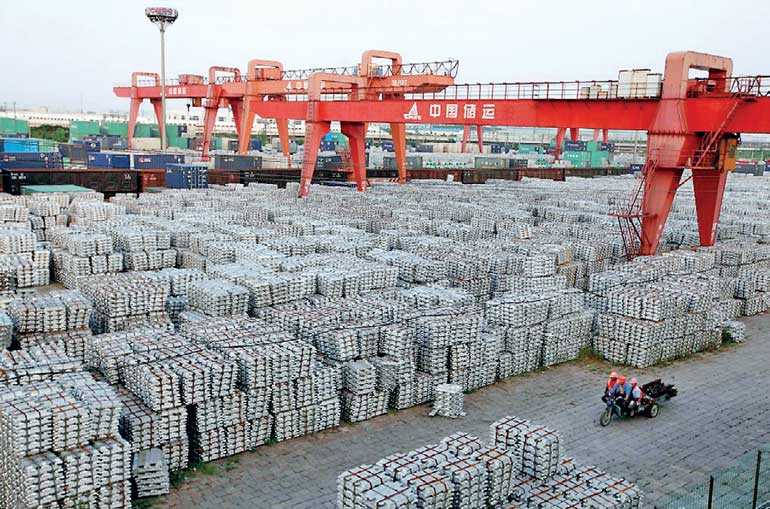Friday Feb 20, 2026
Friday Feb 20, 2026
Thursday, 12 July 2018 00:00 - - {{hitsCtrl.values.hits}}

BEIJING/WASHINGTON (Reuters) : China accused the United States of bullying and warned it would hit back after the Trump administration raised the stakes in their trade dispute, threatening 10% tariffs on $200 billion of Chinese goods.
China’s commerce ministry said on Wednesday it was “shocked” and would complain to the World Trade Organisation, but did not immediately say how it would retaliate. In a statement, it called the U.S. actions “completely unacceptable”.
The foreign ministry described Washington’s threats as “typical bullying” and said China needed to counter-attack to protect its interests.
“This is a fight between unilateralism and multilateralism, protectionism and free trade, might and rules,” foreign ministry spokeswoman Hua Chunying told a regular briefing on Wednesday.
Beijing has said it would hit back against Washington’s escalating tariff measures, including through “qualitative measures,” a threat that U.S. businesses in China fear could mean anything from stepped-up inspections to delays in investment approvals and even consumer boycotts.
China could also limit visits to the United States by Chinese tourists, a business state media said is worth $115 billion, or shed some of its U.S. Treasury holdings, Iris Pang, Greater China economist at ING in Hong Kong, wrote in a note.
The $200 billion far exceeds the total value of goods China imports from the United States, which means Beijing may need to think of creative ways to respond to such U.S. measures.
On Tuesday, U.S. officials issued a list of thousands of Chinese imports the Trump administration wants to hit with the new tariffs, including hundreds of food products as well as tobacco, chemicals, coal, steel and aluminum, prompting criticism from some U.S. industry groups.
It also includes consumer goods ranging from car tires, furniture, wood products, handbags and suitcases, to dog and cat food, baseball gloves, carpets, doors, bicycles, skis, golf bags, toilet paper and beauty products. “For over a year, the Trump administration has patiently urged China to stop its unfair practices, open its market, and engage in true market competition,” U.S. Trade Representative Robert Lighthizer said in announcing the proposed tariffs.
“Rather than address our legitimate concerns, China has begun to retaliate against U.S. products ... There is no justification for such action,” he said in a statement.
Last week, Washington imposed 25% tariffs on $34 billion of Chinese imports, and Beijing responded immediately with matching tariffs on the same amount of U.S. exports to China. Each side is planning tariffs on a further $16 billion in goods that would bring the totals to $50 billion.
Investors fear an escalating Sino-U.S. trade war could hit global growth and damage sentiment.
On Wednesday, the MSCI’s broadest index of Asia-Pacific shares outside Japan .MIAPJ0000PUS was down about 1%, while the main indexes in Hong Kong .HSI and Shanghai .SSEC recovered somewhat after falling more than 2%.
S&P 500 ESc1 and Dow futures YMc1 dropped around 1%, pointing to a weak opening on Wall Street later on Wednesday.
The onshore yuan tracked its offshore counterpart lower with traders closely watching the key 6.7 per dollar level as pressure mounted on the currency.